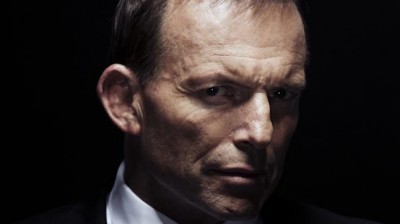“The Terrorist Imaginary”: Australia’s Tony Abbott and the ISIS Phenomenon

The terrorist imaginary necessarily requires mutual enforcement. It begins with the idea of a red under the bed, or the monster in the woods. The work for such a monster is essentially done by the fantasist victim, the individual who fears what he or she might become. For those anticipating the next terrorist attack, praise and aggrandisement of the perpetrator’s potential is exactly what is sought. Call them vicious, call them ambitious, and they have notched a few more points on the ideological scoreboard.
 No one has been doing this better in terms of “western” countries than Tony Abbott of Australia. The Prime Minister has made it a primary object of his time in office to raise the threat of the Islamic State to the level of Satan’s wily battles with God.
No one has been doing this better in terms of “western” countries than Tony Abbott of Australia. The Prime Minister has made it a primary object of his time in office to raise the threat of the Islamic State to the level of Satan’s wily battles with God.
In an address to the UN Security Council in September last year, Abbott insisted that ISIS had “declared war on the world” by emphasising its caliphate building credentials. But it was important for Abbott to globalise local incidents by connecting them with events in Syria. The enemy, in other words, was formidable, seductive and powerful. “Last week, an Australian operative in Syria instructed his local network to conduct demonstration killings and this week an Australian terror suspect savagely attacked two policemen.”[1]
A “terror suspect” is a handy creation of the addled security complex, operating neatly to patch over inadequate arguments and deficiencies in evidence. In that sense, the public relations ballast ISIS obtains in distant Australia is vastly disproportionate with that it can actually do. Terrifying as it is for residents in Syria, Iraq and immediate environs, the impression that a caliphate is about to spring up in Lakemka, Sydney or the Dandenong’s in Victoria are farfetched notions of lunacy. Nor is it entirely convincing that bad boys in the Middle East will continue to be rebels in Australian suburbia.
This has merely spurred Abbott on. Bereft of ideas in keeping the peace, he is intent on forging the ground for domestic conflict. In his latest speech on the subject in what is fast becoming a conference junket of “violent extremism summits,” Abbott explained how the Islamic State represented “terrorism with global ambitions”. The message stemming from the group, which Abbott now insists on calling Daesh, was “Submit or die”.
With a puerile reflex, Abbott could only see an enemy incapable of negotiations and discussion. (This fashionable nonsense is typical of the righteous – in truth, deals are always done, irrespective of how an enemy is rhetorically fashioned.) This is the mirror logic of the inflexible and dogmatic, a phenomenon Abbott knows rather well. “You can’t negotiate with an entity like this, you can only fight it.” This has been his own recipe in domestic politics for years.
Such an approach also reveals a persistent strategy. It is the theme of relevance in the face of irrelevance; huge distances overcome by appropriate proximity to the dangers posed by certain ideas. The land down under, one suitable for the US Marines and signals intelligence, but not really significant to militants keen on redrawing the Middle Eastern map, has become ripe for conquest.
Yearning for his invitation to the boardroom of historical merit, Abbott insists that Australia has been swept up in the current of terroristic fascination, one which has affected a list of countries, including France, Belgium, Canada, Afghanistan, Pakistan, Egypt, Nigeria, Jordan, Denmark, Kenya and the United States. “The tentacles of the death cult have extended even here as we discovered with the Martin Place siege last December.” For those vaguely acquainted with the colourfully distressed past of the man in question, Man Haron Monis, Islamic fundamentalism was merely a prop, a crutch of reassurance. All in all, he was merely an ideological drag act, keen to dress up for a fashion when needed.
Feeding such threats adds fuel to the suggestive fire that revolutions only succeed because the government of the day is happy to do four fifths of the work of the threat in question. As Abdul-Rehman Malik, programs manager at the Muslim outreach group Radical Middle Way opined, “to call [Islamic State] a death cult, as the Australian Prime Minister does, is a complete misnomer and it actually feeds in to IS propaganda.”[2]
Instead of focusing on feasible education programs involving community individuals of merit, the statement of innate cultural superiority has been raised on the parapets. We are good, you are bad; what we do is fabulous, and what you do reflects the innately primitive and barbaric.
It is an ominous sign for Australians when their leader insists that they are of sufficient importance to be conquered by a “death cult”. In an oddly convergent way, Monis and Abbott share one fundamental principle – a yearning for infamous relevance, and a fear of being inconsequential to the bricks and mortar of history. Being mere minutiae terrifies them.
Dr. Binoy Kampmark was a Commonwealth Scholar at Selwyn College, Cambridge. He lectures at RMIT University, Melbourne. Email: [email protected]
Notes
[1] http://www.theguardian.com/
[2] http://www.abc.net.au/news/

